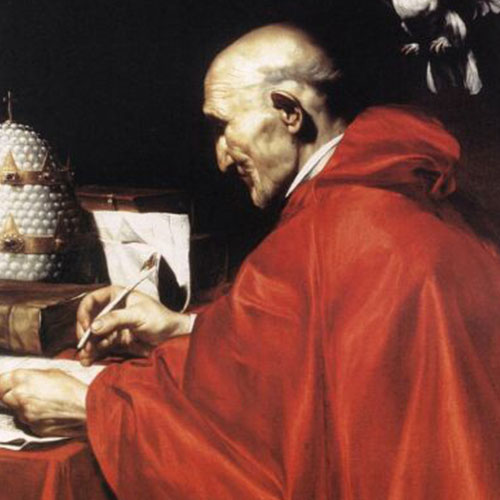
Feast day: September 3
When he was in his 30s, Gregory sold the many properties he owned, established six monasteries on his own estate in Sicily, plus one at his own home in Rome, and distributed much of his considerable wealth to the poor. The next year he became a monk and devoted himself to an austere life of contemplation and pastoral care of the plague-stricken in Rome.
Because he was well known for his holiness, in 590 he was elected Pope, a role he reluctantly accepted. As Pope he continued his care of the poor and hungry and challenged other leaders to attend to those in need rather than the worldly interests of the Church.
Gregory also recognized the need for reform in the Church and imposed important changes in its government. He had long been considered the promoter of "Gregorian chant" (a simplified form of Church music sung for centuries), but this is now debated. Gregory promoted monasticism and is credited with writing many of the prayers recited at Mass. It was Saint Gregory who evangelized England by sending 40 monks from his own monastery, led by Saint Augustine of Canterbury.
Especially noteworthy among Gregory's writings is Pastoral Care, which describes the ministry of bishops as the shepherding of souls. It became the textbook for medieval bishops. Gregory’s way of referring to himself as Pope was as “servant of the servants of God.”
With Saints Augustine, Ambrose, and Jerome, Saint Gregory the Great is one of the four key doctors of the western Church.
(Image in public domain-100)